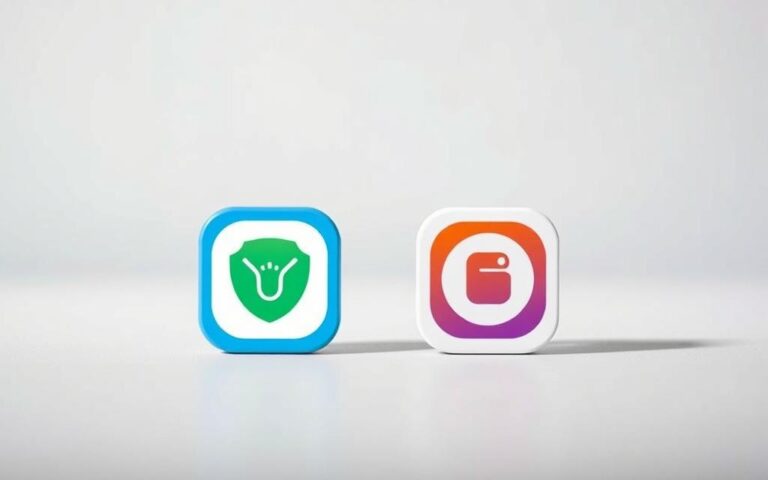Did you know that nearly 25% of U.S. students face internet access issues? This problem has pushed them towards offline studying. Educational apps are now key for students, helping them learn without the internet.
In today’s digital world, apps that work offline are vital for learning. They offer flexibility and convenience. This means learners can study anytime, anywhere.
This article explores the importance of offline reading apps. It shows how they boost productivity and support daily learning.
Introduction to Daily Learning Apps
Daily learning apps are key for better offline learning. They provide easy access to knowledge anytime. Students can use them when they’re not in class.
Importance of Offline Learning
Offline learning is crucial today because of spotty internet. Apps for offline use let students study anywhere. They can learn on buses or during breaks.
These apps help students adapt to different places. They also help develop new skills.
Benefits of Using Apps Without Internet Access
Using apps offline has big benefits. Users can download content to study anytime. This makes learning more flexible.
Productivity apps help make learning more efficient. This leads to better learning habits. Users can learn at their own speed, which helps them remember more.

Top Categories of Offline Learning Apps
There are many offline learning apps out there. They help users learn without needing the internet. You can find apps for learning languages, reading ebooks, and taking courses or tutorials. Each type is important for growing your knowledge and making studying easier.
Language Learning
Apps like Duolingo and Babbel help you learn new languages offline. They have fun games and exercises to practice your skills. These apps are great for anyone wanting to get better at speaking a new language.
E-Book Readers
Ebook readers like Kindle and Google Play Books let you download books to read offline. They offer a huge selection of books to read anytime, anywhere. Reading on these apps helps you learn about different subjects, which is key for studying well.
Courses and Tutorial Apps
Apps like Coursera and Khan Academy let you download lessons to learn offline. They cover many subjects and offer a detailed way to learn. Whether you’re into coding, history, or art, these apps give you the chance to learn without needing the internet.
Popular Offline Learning Apps for Students
In today’s world, offline learning is easier and more flexible thanks to apps. Students can improve their skills on engaging platforms without needing the internet. Here are some top educational apps for offline learning.
Duolingo
Duolingo is a favorite for language learning. It uses games to make learning fun and effective. You can download lessons for offline use, so you can practice anytime, anywhere.
Its interactive design encourages regular use. This makes it perfect for daily learning.
Kindle
The Kindle app from Amazon is a top choice for ebook readers. It offers a huge library of books and educational materials. You can download books for offline reading, letting you study or read without distractions.
This flexibility makes learning better. Students can pick what to read based on their interests or needs.
Coursera
Coursera works with top universities to offer many courses. Many courses can be downloaded, letting students learn at their own pace. This is great for those who need to manage their education around busy schedules.
| App Name | Focus Area | Key Features |
|---|---|---|
| Duolingo | Language Learning | Gamified lessons, offline access, daily practice reminders |
| Kindle | Ebook Reader | Access to diverse titles, offline reading, customizable reading experience |
| Coursera | Online Courses | Partnerships with universities, downloadable course materials, flexible learning schedules |
Features to Look for in Offline Learning Apps
When picking an offline learning app, look for key features. These features should make learning fun and flexible. They help you study better and enjoy the process.
User-Friendly Interface
A good app is easy to use. It lets you find and use educational resources without hassle. This makes learning more fun and engaging.
Downloadable Content Options
Being able to download content is a big plus. It means you can study offline, without needing the internet. Having lots of downloadable resources makes studying more convenient.
Progress Tracking
Tracking your progress is important. It shows you how far you’ve come and what you need to work on. This keeps you motivated and helps you stay on track.
| Feature | Description | Benefit |
|---|---|---|
| User-Friendly Interface | Intuitive navigation and design | Enhances engagement and accessibility |
| Downloadable Content Options | Ability to save materials for offline access | Ensures resources are available anytime |
| Progress Tracking | Tools to monitor learning advancement | Boosts motivation and helps identify focus areas |
How to Maximize Your Offline Learning Experience
Using daily learning apps offline can really boost your productivity and understanding. Here are some tips to help you study better and stay focused.
Setting Study Goals
Setting clear goals is key to learning well. Break big goals into smaller tasks to stay focused and motivated. Use study tools to make SMART goals that are specific, measurable, achievable, relevant, and time-bound.
Reviewing your goals often can also help. It keeps you on track and boosts your productivity.
Creating a Distraction-Free Environment
A quiet study area is crucial for learning offline. It helps you concentrate and engage with your studies. Make sure your study space has everything you need, like notebooks and pens.
Having a calm place to study can improve how well you remember things. It makes learning more enjoyable and effective.
Recommended Apps for Specific Subjects
Choosing the right apps for different subjects can really help your learning. Many educational resources are made for offline use. They help you understand and remember more in various fields. Here are some top picks for key subjects.
History and Social Studies
Apps like Quizlet and History Maps are great for history. Quizlet has flashcards and quizzes to make studying fun. History Maps shows historical events and timelines in a visual way.
Science and Mathematics
Khan Academy and Photomath are top choices for science and math. Khan Academy has lessons on many scientific and math topics. Photomath lets you solve math problems step by step, helping you learn without needing the internet.
Personal Development
Apps like Headspace and Fitbit help with personal growth. Headspace helps with mindfulness and meditation for your mind. Fitbit tracks your physical activity, nutrition, and sleep, helping with overall personal development.
| Subject Area | Recommended Apps | Primary Features |
|---|---|---|
| History | Quizlet, History Maps | Flashcards, Visual timelines |
| Science | Khan Academy | Video lectures, Practice exercises |
| Mathematics | Photomath | Problem solving, Step-by-step solutions |
| Personal Development | Headspace, Fitbit | Meditation, Activity tracking |
User Reviews and Experiences
Users’ feedback gives us a peek into the world of offline learning apps. Many share how these apps changed their learning journey for the better. They talk about how offline learning made education more accessible.
But, they also mention the hurdles they faced. These stories help us understand the ups and downs of learning offline.
Success Stories with Offline Learning
Many users have seen big improvements in their skills with offline learning apps. Their success stories show how these apps boosted their confidence and helped them remember more. For example, language learners praise Duolingo for helping them practice even without the internet.
Each story highlights the power of being able to download lessons. It shows how this feature changed their learning approach.
Challenges Faced by Users
However, users sometimes hit roadblocks with offline learning apps. Limited content can make it hard to learn fully. Some apps are hard to use, which can lower motivation.
It’s important for developers to know about these issues. This way, they can make offline learning better and more effective for everyone.
Conclusion: The Future of Offline Learning Apps
The future of offline learning apps looks bright. Trends show a move towards more engaging and interactive content. This change is thanks to tech advancements in education, making learning richer and more immersive.
As a result, learners will get personalized experiences. These will fit their unique needs, even without internet.
Trends to Watch
Look out for more gamification, social features, and multimedia learning. These elements are making offline learning more fun and interactive. Educational apps are using them to keep users engaged and motivated.
Artificial intelligence and machine learning will also play a big role. They will make offline learning even better, offering content that matches each learner’s progress and understanding.
The Role of Technology in Education
In today’s world, technology is changing how we learn. Offline learning apps are leading this change. They give users a chance to learn without needing the internet.
By focusing on adaptability and user experience, these apps make education more accessible. They help create a culture of continuous learning that benefits everyone.



